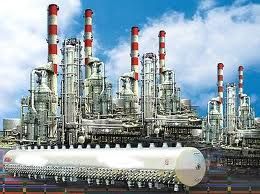
With oil refining margins seemingly strong, why are refineries not moving to cash in on the bounty? The answer lies in the forward structure of the gasoline market.
All summer front-month RBOB gasoline futures have traded well above Brent crude, pointing to solid profitability for refiners.
But the forward structure has been less rosy. Take late June as an example. Front month RBOB cracks surpassed $ 20 a barrel.
Yet the second month forward was priced only $ 13.50 a barrel over crude. The premium in the third month forward was even worse at less than $ 10 a barrel.
In other words, the market was saying to oil refiners: “Don’t overdo it on runs. Enjoy the profits while they last, but don’t leave yourself with too much supply on hand going forward.”
This structure of sharply lower cracks the further along the forward curve has persisted, and worsened, as the market approaches the normal seasonal shift to winter-grade gasoline, which generally faces weaker demand and commands lower prices.
Rightly or not, the market has been anticipating all summer long that a bounce in supply is right around the corner, making it a waste of money to bid up forward supplies.
Yet that supply bounce has not come, forcing the drawdown of gasoline stockpiles to meet demand in the US.
Contrast the situation in gasoline with heating oil. As US distillate stocks have tightened, forward cracks have grown all the more supportive, signaling to refiners that all out production will be welcomed.
The problem, however, is that many Atlantic basin oil refineries are set up to produce lots of gasoline.
So even if the forward market is signaling that it is worthwhile to plan on high runs to capture strong distillate prices, weak gasoline pricing trumps everything else when operating plans are being drawn up.
And because the US still relies on imports of gasoline from Europe to meet demand on the East Coast, the forward structure is particularly important here.
Thus not only do European refiners have to try and anticipate forward markets, they also have to make sure they will be able to cover the cost of shipping surplus gasoline to the US.
With forward markets indicating all summer that a supply bounce was just around the corner cautious European refiners kept the brakes on runs to avoid creating a supply glut.
The real culprit here is twofold. For much of the year jitters have persisted over the sustainability of the current modest economic expansion in the US, raising the specter of renewed declines in gasoline demand.
At the same time feeble US gasoline demand, something which is being deliberately encouraged by US government policy, has forced a restructuring of Atlantic basin supply lines.
Refineries in the Caribbean, hobbled by high fuel costs, have shut down, forcing US consumers to rely more heavily on longer-distance gasoline suppliers to meet demand.
And a knock-on effect of the discipline of regional oil refiners this summer has been a sharp fall in distillate stocks as output of that fuel has been limited by conscious efforts to keep gasoline production in check.
The structure of the gasoline market creates a thorny problem for those who want to act to lower the price of oil.
Neither Saudi Arabia nor major Western consumers think there is a problem with crude oil supplies.
Yet fuel costs will only really decline when inventories of refined products recover.
So what these governments must accomplish is a revaluation of forward gasoline prices against crude. This can only be done by depressing forward crude prices or boosting forward gasoline prices.
However the tools at hand — strategic reserves of crude oil and refined products — are best suited to meeting immediate shortages of oil but offer little influence over the forward structure of the market.
Unless released in such a huge quantity as to force the overall price curve down through “shock and awe,” the use of strategic reserves may well prove an embarrassing failure.
This is why the current oil market problem facing policymakers is similar to the “pushing on a string” limit to monetary policy.
An alternative policy, such as a massive commitment to buy forward gasoline futures in sufficient quantities to boost forward refining margins would be politically suicidal.
Although it would likely bring about a large increase in gasoline production, the effort would require the explicit transfer of public resources to the oil industry.
It is also hard to see a skeptical public embracing a policy whose initial effect would be to raise, not lower, gasoline prices.
Thus policymakers face the unappealing option of waiting for the market to adjust naturally.
This could take two forms. A benign shift would see confidence seep into the forward market, boosting the view of long-term gasoline refining margins, allowing supplies to recover.
In the absence of a confidence boost, a more dramatic, and painful adjustment will occur. Eventually inventories will get so tight that a spike in spot fuel prices gets triggered.
The longer it takes long-term confidence to materialize, the more likely the painful adjustment becomes.
Source: Arab News
We use cookies to improve your experience. By continuing to use our site, you accept our Cookies, Privacy Policy,Terms and Conditions. Close X